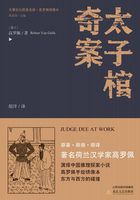“Nearly ten weeks ago—to be more accurate, on the twentythirdof May—he called me into his private room, and, aftercomplimenting me on the good work which I had done, heinformed me that he had a new commission of trust for me toexecute.
“ ‘This,’ said he, taking a gray roll of paper from his bureau,is the original of that secret treaty between England and Italyof which, I regret to say, some rumors have already got into thepublic press. It is of enormous importance that nothing furthershould leak out. The French or the Russian embassy would pay animmense sum to learn the contents of these papers. They shouldnot leave my bureau were it not that it is absolutely necessary tohave them copied. You have a desk in your office?”
“ ‘Yes, sir.’
“ ‘Then take the treaty and lock it up there. I shall givedirections that you may remain behind when the others go, so thatyou may copy it at your leisure without fear of being overlooked.
When you have finished, relock both the original and the draftin the desk, and hand them over to me personally to-morrowmorning.’
“I took the papers and——”
“Excuse me an instant,” said Holmes. “Were you alone duringthis conversation?”
“Absolutely.”
“In a large room?”
“Thirty feet each way.”
“In the centre?”
“Yes, about it.”
“And speaking low?”
“My uncle’s voice is always remarkably low. I hardly spoke at all.”
“Thank you,” said Holmes, shutting his eyes; “pray go on.”
Memoirs of Sherlock Holmes 811
“I did exactly what he indicated, and waited until the otherclerks had departed. One of them in my room, Charles Gorot, hadsome arrears of work to make up, so I left him there and went outto dine. When I returned he was gone. I was anxious to hurry mywork, for I knew that Joseph—the Mr. Harrison whom you sawjust now—was in town, and that he would travel down to Wokingby the eleven-o’clock train, and I wanted if possible to catch it.
“When I came to examine the treaty I saw at once that it was ofsuch importance that my uncle had been guilty of no exaggerationin what he had said. Without going into details, I may say that itdefined the position of Great Britain towards the Triple Alliance,and foreshadowed the policy which this country would pursuein the event of the French fleet gaining a complete ascendancyover that of Italy in the Mediterranean. The questions treated init were purely naval. At the end were the signatures of the highdignitaries who had signed it. I glanced my eyes over it, and thensettled down to my task of copying.
“It was a long document, written in the French language, andcontaining twenty-six separate articles. I copied as quickly as Icould, but at nine o’clock I had only done nine articles, and itseemed hopeless for me to attempt to catch my train. I was feelingdrowsy and stupid, partly from my dinner and also from theeffects of a long day’s work. A cup of coffee would clear my brain.
A commissionnaire remains all night in a little lodge at the foot ofthe stairs, and is in the habit of making coffee at his spirit-lampfor any of the officials who may be working over time. I rang thebell, therefore, to summon him.
“To my surprise, it was a woman who answered the summons, alarge, coarse-faced, elderly woman, in an apron. She explained thatshe was the commissionnaire’s wife, who did the charing, and Igave her the order for the coffee.
“I wrote two more articles and then, feeling more drowsy thanever, I rose and walked up and down the room to stretch mylegs. My coffee had not yet come, and I wondered what was thecause of the delay could be. Opening the door, I started downthe corridor to find out. There was a straight passage, dimlylighted, which led from the room in which I had been working,and was the only exit from it. It ended in a curving staircase, withthe commissionnaire’s lodge in the passage at the bottom. Halfway down this staircase is a small landing, with another passagerunning into it at right angles. This second one leads by means ofa second small stair to a side door, used by servants, and also as ashort cut by clerks when coming from Charles Street. Here is arough chart of the place.”
812 The Complete Sherlock Holmes
“Thank you. I think that I quite
follow you,” said Sherlock Holmes.
“It is of the utmost
importance that you
should notice this
point. I went down
the stairs and into the
hall, where I found
the commissionnaire
fast asleep in his box,
with the kettle boiling
furiously upon the
spirit-lamp. I took off the kettle and blew out the lamp, for thewater was spurting over the floor. Then I put out my hand and wasabout to shake the man, who was still sleeping soundly, when a bellover his head rang loudly, and he woke with a start.
“ ‘Mr. Phelps, sir!’ said he, looking at me in bewilderment.
“ ‘I came down to see if my coffee was ready.’
“ ‘I was boiling the kettle when I fell asleep, sir.’ He looked atme and then up at the still quivering bell with an ever-growingastonishment upon his face.
“ ‘If you was here, sir, then who rang the bell?’ he asked.
“ ‘The bell!’ I cried. ‘What bell is it?’
“ ‘It’s the bell of the room you were working in.’
“A cold hand seemed to close round my heart. Someone, then,was in that room where my precious treaty lay upon the table. Iran frantically up the stair and along the passage. There was noone in the corridors, Mr. Holmes. There was no one in the room.
All was exactly as I left it, save only that the papers which hadbeen committed to my care had been taken from the desk onwhich they lay. The copy was there, and the original was gone.”
Holmes sat up in his chair and rubbed his hands. I could seethat the problem was entirely to his heart. “Pray, what did you dothen?” he murmured.
“I recognized in an instant that the thief must have come up thestairs from the side door. Of course I must have met him if he hadcome the other way.”
“You were satisfied that he could not have been concealed in theroom all the time, or in the corridor which you have just describedas dimly lighted?”
“It is absolutely impossible. A rat could not conceal himselfeither in the room or the corridor. There is no cover at all.”















